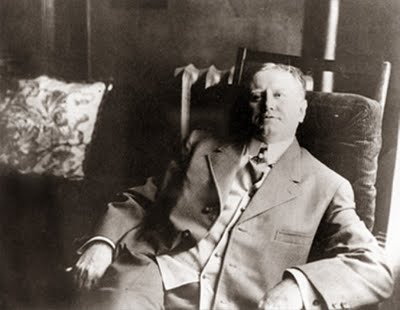

Of Christmas Carols, O. Henry, and Prison Reform
By DEAN DEXTER
My Christmas observance started at a community Christmas Carol Sing-a-along in Laconia at the church of my youth, with its dark wood interior trimwork, and massive chandeliers. My daughter was with me and we enjoyed singing the ancient favorites, no preaching, no collection, just an hour of carols, unashamedly celebrating the birth of Christ in a most un-politically correct way. The hand-bells and magnificent, hearty chords of the Austin organ, with pipes reaching high into the vaulted ceiling, just rattled my soul. I was ready then and there to partake of roast goose, chestnuts, and plumb pudding, and give the ghost of old Jacob Marley a good kick in the butt. “God bless us every one…”
With that holiday of holidays now past, I have been spending the week, during that queer interregnum between Christmas, with its hurry and sparkle, and sometimes magic, and the over-rated hoopla of New Year’s eve, by reading stories of old New York by one William Sidney Porter, who died in 1910, while pondering the consequences of a life when it goes this way, instead of that.
Porter grew up in Greensboro, North Carolina, left home in his early 20s, and set out for Texas, eventually becoming a bank teller. Here he wrote stories, published a humor magazine called The Rolling Stone, no less, became a drunk, and went to prison for embezzling money from the bank. Sentenced to five years, they let him out in three.
Prison in those days did not include the canteens with candy bars and chewing gum, and chicken noodle soup, or ball fields, cable television, and clean work-out rooms one finds in most such U.S. institutions of today, which rightly are also highly monitored by various entities, public and private, to insure the citizens therein are, for the most part, treated humanely and their constitutional rights protected.
American prisons at the turn of the century were stinking hell holes, with wooden buckets for toilets, scraps of bread and rancid meat for food, long hours of hard, dirty labor, and the threat of beatings at the hands of illiterate guards, and crazed fellow inmates. Still, they could evidently be a writer’s hovel, as well.
When Porter was sprung from prison for good behavior in 1901, he headed for New York City, to get away from his past. Here he got himself a room and began to sell stories he had written in prison, under the name “O. Henry.”
 O. Henry, 1909
O. Henry, 1909
I am wondering, yet, if Porter could have reached the literary success that he did, if he had not gone to prison to write incessantly, but had stayed in Texas, and made an honest success of himself in banking, a perfectly upstanding occupation, provided one does not take home what is not yours.
Soon this ex-con was under contract with the New York World, then the greatest newspaper in the country. In all, Porter became hugely successful, churning out short stories at an average of two a month, and was published in over 30 magazines. Then he died a penniless, alcoholic at the age of 47, and that was that, for O. Henry, aka William Sidney Porter.
Maybe Porter’s most famous story, is a Christmas one, “The Gift of the Magi,” other good ones are “Two Thanksgiving Day Gentlemen,” “A Madison Square Arabian Night.” And of course “The Rubaiyat of a Scotch Highball.”
I am one who believes victims need closure, society requires justice, and redemption is possible when one pays an owed debt to society, and sometimes in more ways than one, as in the case of one William Sidney Porter.
Yet, I also believe our prisons are over-loaded today with too many petty miscreants, imbibers, dopers, parole breakers, and harmless fools, people better punished in ways less burdensome to taxpayers than locking them up to rot. Supervised home confinement at night, and hard labor, maybe some job training, and an educational curriculum by day, would be money well spent for most.
Prison should only be for the hardened, the violent, the armed thief, the scam artist and grifter, the murderous thug, and all lying, low-life politicians.
The New Hampshire Commissioner of Corrections has begun to look at alternatives to confinement. It’s that, or build more prisons and hire more guards, something the state can ill afford. Even if it could, would this be a wise, best use of public funds?
Anyway, let’s lift a New Year’s cup to the memory of William Sidney Porter, as in O. Henry, whose life and works should be required reading in all schools, public and private, and in all prisons. Especially the prisons.
Column Published, Laconia Daily Sun, December 31, 2009
-- Posted December 29, 2009
Return to NH Commentary Home Page
© 2009 NHCommentary.Com
P.O. Box 706
Concord, NH 03302